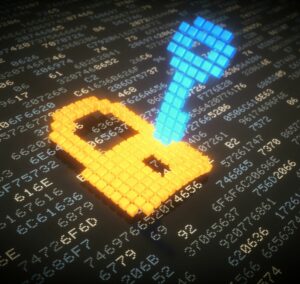Legal and Privacy Considerations of Digital Locks
In the era of digital transformation, the security of our homes and digital assets has transcended traditional lock and key mechanisms, ushering in the age of digital locks. These innovative technologies promise enhanced security, convenience, and personalized access control, revolutionizing the way we protect our properties and sensitive information. However, as with any technological advancement, digital locks also present a myriad of legal and privacy considerations that cannot be overlooked. Join us as we explore the world of digital locks, offering insights and guidance for those ready to embrace this technology while being mindful of the legal and privacy considerations of digital locks.
Data Collection: Examining the Information Gathered by Digital Locks and Its Potential Impact on Privacy
The amount of data that digital locks are capable of collecting has raised concerns about privacy and the potential for misuse of personal information. Digital locks, whether they are in the form of smart locks for homes or encryption technology for online accounts, have the ability to gather a wide range of information. This can include data such as access times, locations, and user preferences. While this data can be valuable for improving security and personalizing user experiences, there are important considerations when it comes to balancing the benefits with the potential impact on privacy. One of the main tradeoffs in data collection by digital locks is the need for informed consent from users.
Transparency about what is being collected and how it is being used is crucial for users to make informed decisions about their privacy. Users should have the opportunity to understand the types of data that are collected by the lock and have control over its collection and storage. This can be particularly important when it comes to sensitive information such as biometric data or location history. Striking the right balance between data collection for security purposes and respecting user privacy will be a key challenge for digital lock manufacturers and regulators alike.
Safeguarding Personal Information: Assessing the Security Measures Implemented by Digital Locks
Digital locks play a crucial role in safeguarding personal information in our increasingly digitalized world. As more and more data is being stored and transmitted online, it is essential to assess the security measures implemented by digital locks to protect this sensitive information. One key aspect of assessing the security of digital locks is encryption. Encryption ensures that the data is converted into a code that can only be deciphered with the correct encryption key. Strong encryption methods, such as advanced algorithms and lengthy encryption keys, provide a higher level of security.
However, there is a tradeoff between security and convenience. Strong encryption may require more computational power and time to encrypt and decrypt data, which can affect the user experience and efficiency. Another important factor to consider is authentication. Digital locks should employ robust user authentication mechanisms to ensure that only authorized individuals have access to the protected information. This may involve the use of strong passwords, multi-factor authentication, or even biometric measures such as fingerprint or facial recognition. However, it is essential to strike a balance between convenience and security, as overly complex authentication processes can discourage users.

Future Challenges and Considerations: Anticipating the Legal and Privacy Issues That May Arise with Advancements in Digital Lock Technology
The future of digital lock technology brings with it both exciting advancements and complex challenges. As we continue to rely on digital locks to protect our personal information and secure our digital assets, it is crucial to anticipate the legal and privacy issues that may arise. One key challenge is the balance between convenience and security. As digital locks become more sophisticated, they offer an array of features and functionalities that enhance user experience. However, this convenience might come at the cost of weakened security measures. It is crucial for lawmakers and regulatory bodies to closely monitor advancements in digital lock technology and ensure that stringent security standards are in place to safeguard against potential breaches and unauthorized access.
Finding the right balance between convenience and security is integral to ensuring the overall effectiveness and reliability of digital locks. Another challenge is the evolving landscape of privacy regulations. With advancements in digital lock technology, new avenues for collecting and storing data are emerging. This raises concerns about how this information is gathered, used, and shared. It is imperative for legislation to keep pace with technological advancements to address potential privacy risks effectively. Striking the right balance between the benefits of data collection for innovation and the preservation of individual privacy rights is essential to avoid potential infringements on personal data and ensure trust in digital lock technology.
Protect Your Property With Our Mobile Locksmith Experts
Once you’ve thoroughly weighed the benefits and drawbacks of digital lock technology, you can take the next step: finding the right digital lock system for your residential or commercial property. Regarding which locksmith service you can trust to help you in this task, Mobile Locksmith is the team of experts you need. Reach out to us today and get started.


